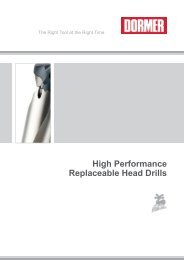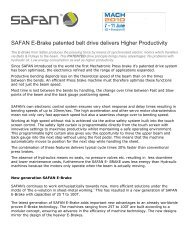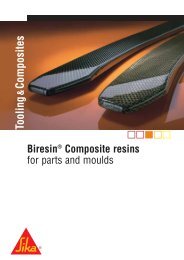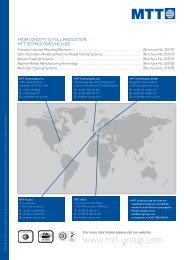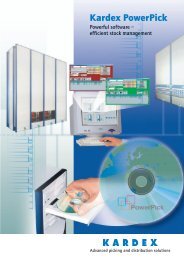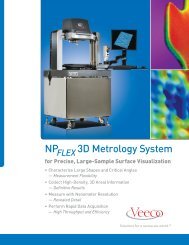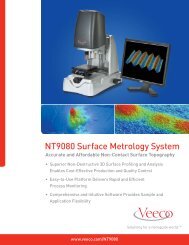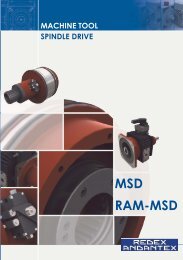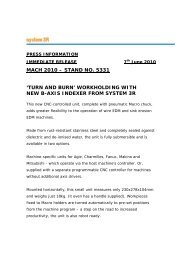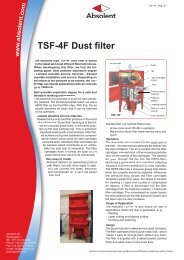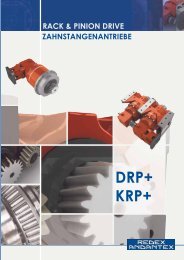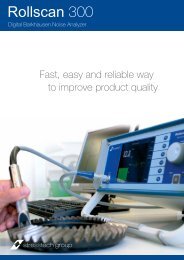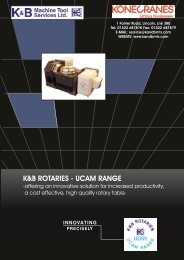DMLS Materials - Technical Specifications
DMLS Materials - Technical Specifications
DMLS Materials - Technical Specifications
You also want an ePaper? Increase the reach of your titles
YUMPU automatically turns print PDFs into web optimized ePapers that Google loves.
Source: EOS<br />
<strong>Technical</strong> Data<br />
<strong>DMLS</strong> <strong>Materials</strong> - <strong>Technical</strong> Specification<br />
Ti64 Titanium alloy (EOS Ti64)<br />
Physical & Chemical properties<br />
Minimum recommended layer thickness 30 µm Relative density with standard parameters approx. 100% (4.43 g/cm 3 )<br />
Minimum wall thickness<br />
0.8 mm<br />
Volume rate ~3 mm 3 /s<br />
Mechanical properties at 20 0 C<br />
(vertical orientation)<br />
Ultimate tensile strength<br />
Yield strength (Rp 0.2%)<br />
After stress-relieving<br />
1150 MPa + 60 MPa<br />
1030 MPa + 70 MPa<br />
Elongation at break 11% + 2%<br />
Young’s Modulus<br />
Hardness<br />
110 GPa + 7 GPa<br />
414 + 15 HV<br />
Surface roughness<br />
- after shot-peening approx. R a<br />
4 µm<br />
Thermal properties<br />
Maximum operating temperature 350°C<br />
Typical applications<br />
• Direct manufacture of functional prototypes, small series products, individualised products or spare parts<br />
• Parts requiring a combination of high mechanical properties and low specific weight, e.g. structural and engine components<br />
for aerospace and motor racing applications, etc.<br />
• Biomedical implants<br />
Stress relieving procedure:<br />
Stress relieving is done in a stress relieving furnace under argon atmosphere or in a vacuum furnace. The stress relieving sequence is<br />
as follows:-<br />
1. ramp up to 650 °C in 60 minutes<br />
2. hold for 3h<br />
3. furnace heating power off and open the furnace door when temperature dropped down to approx. 400°C<br />
Annealing:<br />
Material composition:<br />
Ti<br />
Al<br />
88.4-91.0 wt%<br />
5.5-6.5 wt%<br />
O 2<br />
N<br />
V 3.5-4.5 wt% C<br />
< 2000 ppm<br />
< 500 ppm<br />
< 800 ppm<br />
Specific properties can be modified by annealing the parts at various temperatures ranging from 650 to 850°C and for dwell times<br />
between 1 and 4h.<br />
H 2<br />
Fe<br />
< 120 ppm<br />
< 2500 ppm



